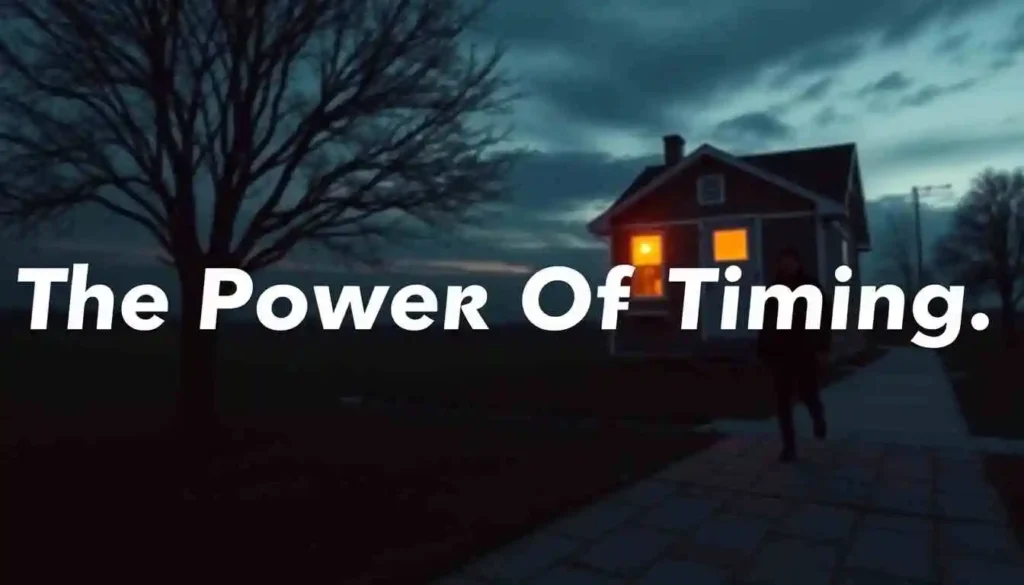Finalizing a home purchase from a foreign government: It just sounds like a hassle when you think about it, to be honest. Papers flying back and forth. Deadlines are creeping closer. People speaking in jargon. And every time you think all is resolved… Someone mentions the wire transfer to today.
Behind the scenes, there is usually a real estate closing attorney making sure things don’t teeter off to ruin. Effectively and professionally, and occasionally with a bit of last-minute magic, they preserve transactions.
But here’s a little-known secret: these lawyers are sitting on a gold mine of secrets. Some are legal, some are strategic, and some are just … instinctual. Let’s unravel that.
10 Insider Secrets of Real Estate Closing Attorneys
Secret 1 – Get Red Flags Sooner Rather than Later
An experienced10 Real Estate Closing Attorney Secrets can spot problems long before you do. They can sniff out red flags, like a hinky title report or a hinky seller.
They specialize in going through public records with a fine-tooth comb, finding liens that aren’t immediately apparent, and flagging concerns that other readers might miss. lord help as a mind reader subject. It’s a little bit like having a translator for the subtext.
Behind-the-Scenes Drama Settled in Private Battles You Never Saw
Their struggles frequently go unnoticed. The smooth closing you see masks the complexities they deal with, like discreetly working through a tricky divorce settlement or getting a stubborn mortgage release to work properly.
Secret 2—Don’t Depend Solely on the Title Report
While title reports may seem official and final, closing attorneys know that they are not.
They understand that a title report is just the beginning, not the answer. They often follow up with the title company, verify prior reports, or demand additional documentation.

Well-Conceived Checking to Secure Transactions
One closing attorney found an error in an ancient deed where a name was misspelled by a single letter. While it resulted in a delay in closing, it also protected the buyer from getting caught up in a protracted legal battle. A single letter changed everything.
Wisdom 3 – Careful Contract Review
Few people take the time to read through contracts, even though contracts are so influential. Buyers rarely read documents, sellers assume, and agents aren’t always legally savvy.
That’s where lawyers come in, hauling magnifying glasses to the text so that they might uncover potential pitfalls in the fine print. What seems a minor provision buried in “Miscellaneous” may lead to major changes in who pays for closing costs.
The Power of Exact Wording: Can Language Keep Deals From Unraveling?
And the distinction between “Shall” and “may” is not just grammatical, but one of obligation versus suggestion. Lawyers know the value of this subtlety and the importance of it when a party has failed to perform as promised.
Tactic 4 – The Power Of Timing started to walk away to your product, and give the old
Out the door, you are just walking from your product.
Closings aren’t down to just chance, they are a try craftsman. Requires A skill… For a closed. Lawyers are working these nuances back channels, and know exactly when to move, when to hold, when to apply some leverage.

Strategic stalling to work tactical positions
Ever see a 180-degree change in progress when an attorney was involved? This forced waiting strategy enables pressure to build to be in a better position to act when conditions are optimal.
5- The Importance of Clear Communication
It is a very important, but often overlooked, skill. A skilled attorney may be able to deftly handle negotiations with nervous buyers, unyielding sellers, and sluggish lenders to ensure that the deal goes through.
Reading Emotion In Work Communications And Indirect Answers
“My role is a lot of reading frustration,” one lawyer said. They can read a short email and tell in an instant who is worried and who is bluffing. This skill to ‘read between the lines’ is much needed to make fair and reasonable transactions.
6 – Becoming a Strategic Silence Warrior
Information denial is sometimes the best way to go. It’s easy to more or less sleepwalk into battles by highly skilled pros, but experienced litigators know when to back off.
A Strategic Silence to Benefit the Client
Consider an example in which a customer is angry over an unfinished repair. Lawyers are known to be impulsive. One might think that they realize opening up this can of worms right off the bat is not a good idea. They are not following but watching and coming back later to the issue.

7 Correcting The Mistakes Of Others
Not all transactions go smoothly. And too many lawyers clean up mistakes that were made in documents prepared by incapable agents or agreements that didn’t contain all the necessary disclosures.
Combating Agents’ Excessive Lawyering
Let’s face it, some real estate brokers provide poor legal counsel. Lawyers spot these issues and perform a little “whisper campaign” to turn things around without an explosion.
8 – Meticulous List Use: Get real about managing your list.
I’ve heard this about closing lawyers: They are obsessed with their checklists, even more so than airline pilots.
How to Choose the Best Commercial Real Estate Lawyer
Guide LHB Real Estate to Smart Property Investments
Real property law demands precision
A single slip on signatures or dates can become more of a legal mess. Checklists are your lifeblood here—humans can mess up, and if you’re doing a high volume of closings each week, you can’t rely on memory.
Insight 9 – Noticing Details on Closing Disclosures
Some real estate brokers overstep their expertise and provide bad legal advice. They are able to spot charges that don’t add up, like a $275 fee for a courier.
Financial Concerns and Vigilance
Surprise fees, double billing, and charges from the wrong entity are not the exception but the rule. By a careful study of the finished documentation, substantial savings could be achieved.
Wisdom #10 – Thinking Ahead and Solving Problems: Keep an eye out for potential problems.
It is sobriety, not defeatism, that is in order. Closing attorneys act as though anything may go wrong, and occasionally it does.

Sailing the Stormy Seas of Real Estate Closings
Veterans have seen the emotional fallout of last-minute decisions — buyers who break down in tears; sellers who storm away; wire transfers that disappear; banks that don’t return calls minutes before the deadline. You may be annoyed because your lawyer seems too overprotective, but there are interesting tales behind their reasoning, probably more than one.
How to Protect Real Estate Litigation Attorney
In Summary, Real Estate Closing Attorney
The bottom line is that Real Estate Closing Attorney are not secretaries. They are strategists, mediators, and even occasional bearers of miracles. You will never understand all the risks they protect you from, but that is okay; they will do it all the same. With some luck, you won’t have to see how it could go wrong.
FAQs 10 Real Estate Closing Attorney Secrets
Do I need a closing attorney?
In many states, yes — it is mandatory. It can save you from costly mistakes, even when it could be optional.
What distinguishes a lawyer from a title company?
A title company provides insurance. A counsel gives you legal advice. Major difference if something goes wrong.
May I choose my closing lawyer?
Usually, yes. Buyers frequently have the right to their attorney. Confirm local laws and your contract.
What happens if there are problems at closing?
The attorney intervenes. They can renegotiate, postpone, or even halt the deal if necessary.
How much are real estate closing lawyers’ fees?
The cost varies, but depending on complexity and region, expect to pay between $500 and $1,500.
